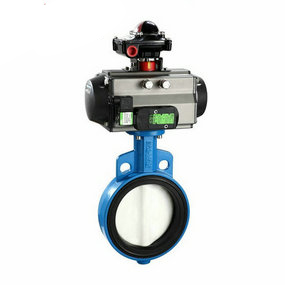How does flange pneumatic butterfly valve work? Main components of pneumatic ball valve
The flange sealing methods of the end and adapter plate of the pneumatic ball valve commonly used in life are JBF, GF, HF and ZF.
The common pneumatic ball valve is a kind of curved capsule made of, and wire, commonly known as pneumatic tire, corrugated pneumatic tire, leather tiger, etc. The two ends of the capsule shall be connected with two steel plates to form a compressed air chamber. The cable itself does not provide the load bearing capacity, but is completed by the compressed air filled into the capsule. The number of curved sacs is usually 1-3, but it can also be designed to form 4 or more than 5 curved sacs according to demand, and it can also be used by superposition of two pneumatic ball valves under certain conditions.
Pneumatic ball valve is also called as air stroke conditioner and air vibration isolator according to its performance and characteristics. The end structure of the existing curved bag pneumatic ball valve can be divided into three categories according to the connection mode:
One is the fixed flange connection type. The edge size of both ends of the pneumatic ball valve is equal to or slightly smaller than the maximum outer diameter of the curved capsule. After drilling several holes, it is fastened with a blue ring and an end plate;
The other is the looper flange connection type. The size of the edges at both ends of the pneumatic ball valve is much smaller than the maximum outer diameter of the curved capsule, and there is no need to drill holes. A special flange ring and an ordinary end plate are used to fasten the connection;
The third type is a self sealing type, which is not connected by flange, but is pressed into the end plate and self sealed when compressed air is filled.
In fact, we must be able to see a lot of valve installations similar to pneumatic ball valves in our life. Today's articles on this topic will be shared with you here. Thank you for your reading!


